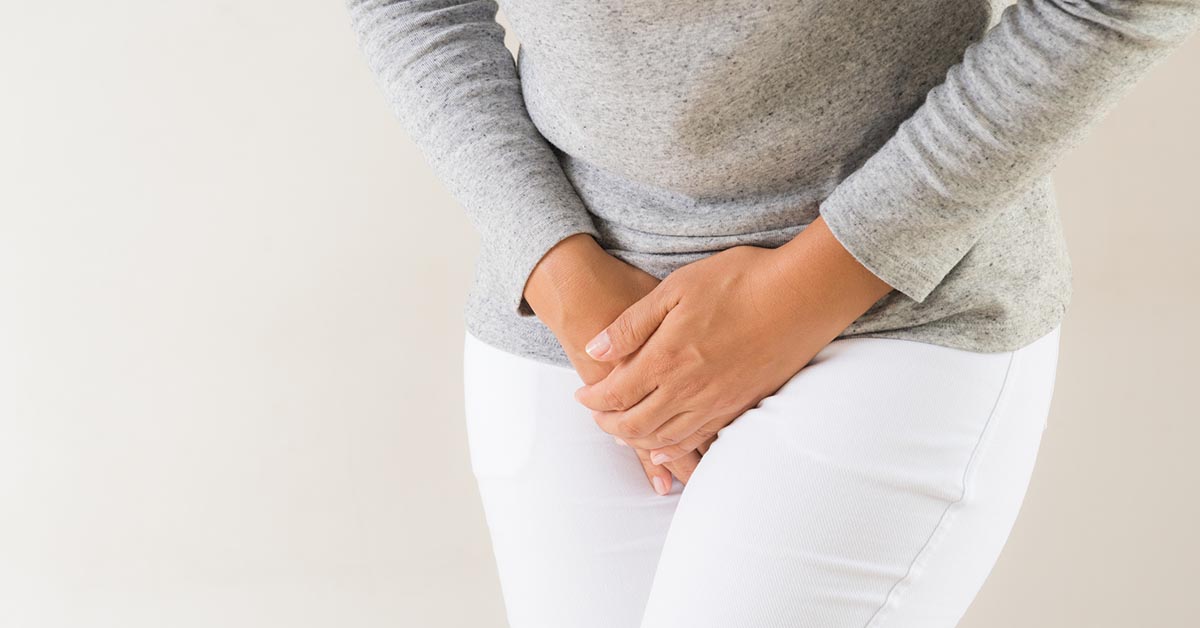Many women are familiar with the burning, abdominal pressure and back pain associated with urinary tract infections. An estimated 25 to 40 percent of women between the ages of 20 to 40 will experience the condition at some point.
Treatment with oral antibiotics usually addresses the condition. But what if you get the infections frequently?
Dr. Annaceci Peacher, a urogynecologist at Tidelands Health OB/GYN, says understanding the structure of the female anatomy helps explain why urinary tract infections (UTIs) occur.
“The length of the urethra is much shorter than in men. For women, it’s only two to four centimeters from the outside of the vagina to the inside of the bladder. That increases the risk of bacteria and other microorganisms reaching the bladder where they can cause infection and inflammation,” Dr. Peacher says.
Age a factor, too
Age can complicate matters. As women get older, levels of the female sex hormone estrogen decrease, says Dr. Peacher, who has extensive experience treating women with recurrent UTIs.
“Estrogen helps improve the health of the vaginal tissue and decrease bacteria’s ability to get into the bladder. A lack of estrogen can make women’s’ bodies more susceptible to bacteria,” she says.
Bladder leakage and fecal incontinence also increase the likelihood of UTIs. That’s because wearing incontinence pads or briefs can create an ideal setting for bacterial growth that can more easily invade the urinary tract.
Women who have more than three UTIs in a six-month period or four in one year are considered to experience recurrent UTIs, Dr. Peacher says. UTIs can lead to more significant health issues such kidney infections and sepsis, so it’s important to get the condition treated by a medical professional whenever it occurs.
Dr. Peacher, who is fellowship trained in female pelvic medicine and reconstructive surgery, says UTIs are almost always treated with an oral antibiotic.
Diagnosis
To find out if you have a UTI, a urinalysis will be conducted at your physician’s office. The test checks the appearance, concentration and content of your urine and determines if it contains nitrites, leukocytes and red blood cells. If it does, the urine sample will be sent to a lab for a culture. This process identifies the exact type of bacteria that’s growing in your urinary tract so your doctor can prescribe an effective antibiotic.
Some women who have experienced recurrent infections may take a preventive antibiotic for a short period of time. But Dr. Peacher says it’s not a good idea to take antibiotics for longer than necessary.
“Antibiotic resistance is a real concern, so we don’t like to leave women on even a low-dose of antibiotics for long periods,” she says.
How to reduce your risk
Dr. Peacher says there are ways to decrease your risk of future UTIs. Probiotics with a high level of lactobacillus and supplements like D-mannose can help, she says. There’s no evidence that cranberry juice or cranberry supplements work, but Dr. Peacher says there’s no harm in taking them if you think they are effective.
For post-menopausal women, vaginal estrogen can make a difference. Vaginal estrogen cream, which is applied to the inside of the vagina, improves the health of the tissue, making it more resistant to bacterial overgrowth.
Enjoying this story? It’s free to republish. Learn more.
Women who wear incontinence products should ensure proper pelvic hygiene so bacteria don’t have a chance to grow near your body.
“Along with trying to prevent or treat any kind of incontinence, it’s important to stay as clean and dry as possible,” Dr. Peacher says.
Some women experience recurrent UTIs after sexual intercourse. Dr. Peacher says post-coital antibiotics can help women in this situation. These antibiotics are typically self-administered as a single dose after intercourse.

Dr. Annaceci Peacher
Urogynecologist, Tidelands Health OB/GYN
Bio
Dr. Annaceci Peacher is a fellowship-trained urogynecologist who provides care at Tidelands Health Women’s Center. She is accepting new patients.
Learn MoreMedical Education
Education
- University of Texas Health Science Center at San Antonio
Residency
- University of Texas at Austin
Fellowship
- Mount Sinai Icahn School of Medicine
Awards
Board Certification
American College of Obstetricians and Gynecologists
Meet the Expert
Dr. Annaceci Peacher
Dr. Annaceci Peacher is a fellowship-trained urogynecologist who provides care at Tidelands Health Women’s Center. She is accepting new patients.






